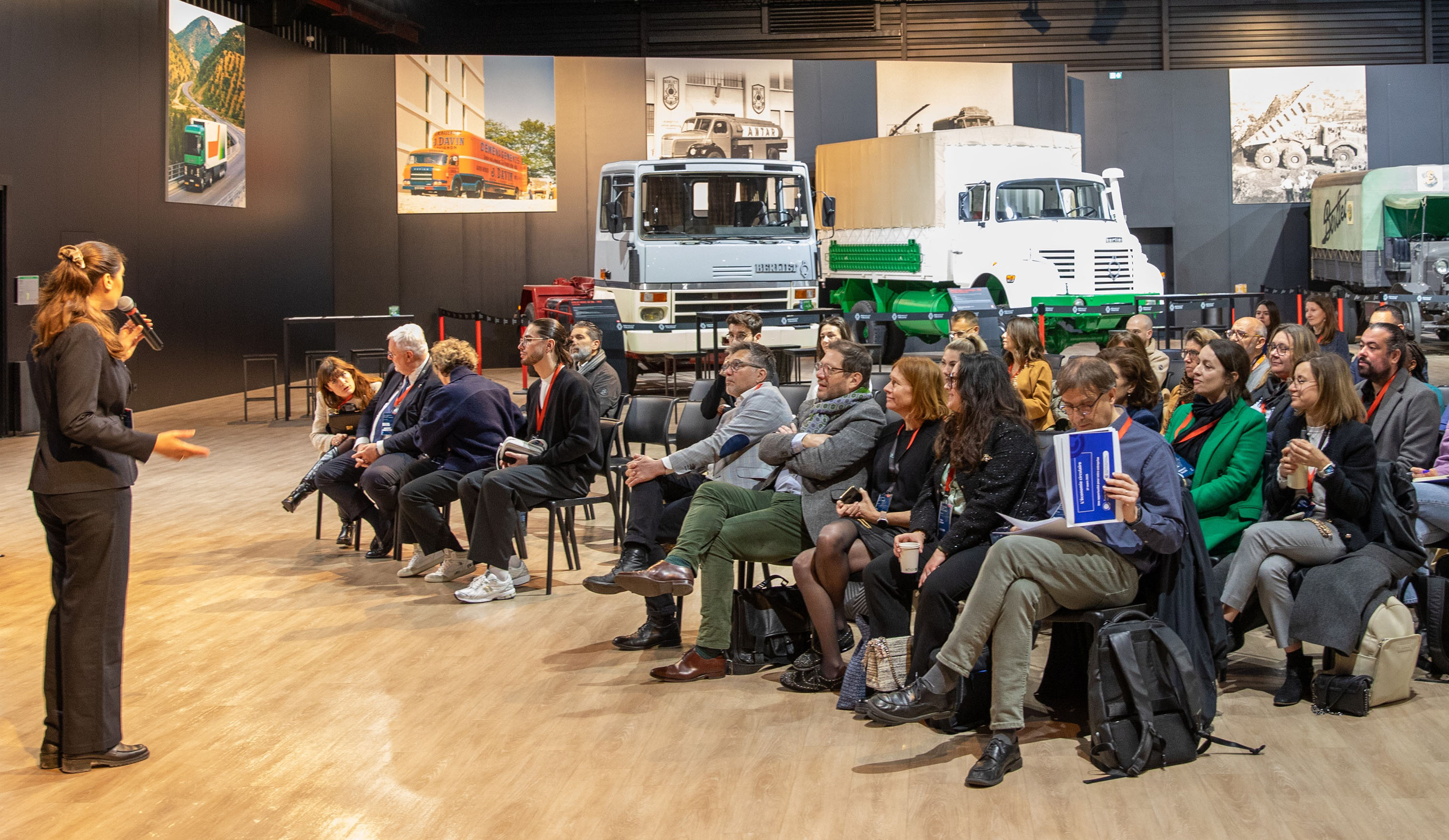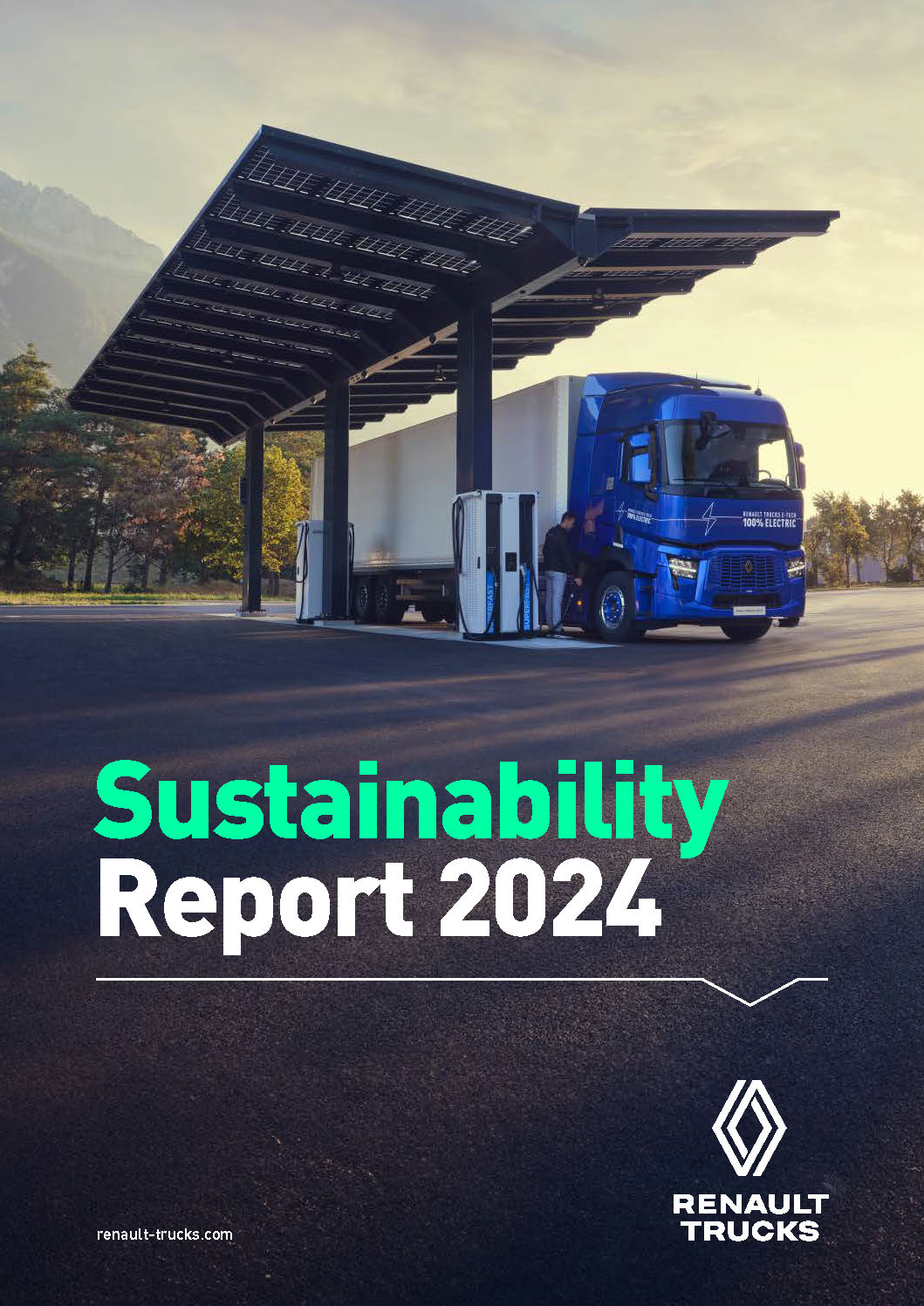As part of its commitment to decarbonising its operations, Renault Trucks is leveraging the circular economy as a key strategy to reduce the environmental impact of its vehicles. This sustainable approach is built around four core pillars, namely eco-design, refurbishment, repurposing and remanufacturing, and end-of-life management and recycling. Rather than simply replacing products, the focus is on extending their lifespan, thereby offering a more innovative way forward. This initiative was showcased to businesses in the Auvergne-Rhône-Alpes region during a United Nations Global Compact event, hosted at the manufacturer’s headquarters last March.

A sustainable strategy aligned with the Paris Agreement
A decade ago, the Volvo Group, which includes Renault Trucks, ratified the Paris Agreement with a clear goal, namely to limit global warming. Since then, cutting carbon emissions has been a top priority. To achieve this, Renault Trucks is taking action through a number of levers, including the circular economy. Not only does it help reduce the use of natural resources and lower the environmental impact of its trucks, but it has also become a powerful driver of transformation within the company.
Renault Trucks quickly saw an opportunity. For the manufacturer, innovation is no longer just about creating something new – it’s about designing sustainable solutions that minimise its impact.
In a parallel move, Renault Trucks decided to join the United Nations Global Compact, the world's largest voluntary corporate sustainability initiative. Launched by the United Nations, the Compact encourages businesses to adopt socially and environmentally responsible practices, as well as providing information and facilitating the sharing of experiences and the building of partnerships – all within a framework of sustainable development and transparency.
A regional meeting to share best practices
In March, Renault Trucks hosted around forty business leaders from the Auvergne-Rhône-Alpes region at its international headquarters. The event aimed to showcase its approach to the circular economy, sharing real-world case studies based on several years of grass roots experience.
The four pillars of Renault Trucks' circular economy
Eco-designing trucks to minimise their impact. Eco-design takes into account a vehicle’s entire environmental footprint from the outset, including raw material extraction, production, operation, maintenance and recycling. The goal is to extend the lifespan of components, simplify disassembly and enhance recyclability.
Refurbishing trucks for a second life. After three or four years of use, some Renault Trucks vehicles undergo a complete refurbishment before returning to service with a new haulier. From software updates to mechanical and aesthetic overhauls, everything is optimised to guarantee top performance. This approach makes full use of the trucks' capabilities, with many surpassing a million kilometres.
Repurposing trucks to maximise their lifespan. Renault Trucks vehicles are built to last – and can be transformed to take on new roles. At the Used Trucks Factory in Bourg-en-Bresse, long-haul T-range vehicles are converted into X-Road approach trucks. A practical way to reduce the need for new vehicles.
Remanufacturing used parts to save resources. Remanufactured spare parts show that cost-effective truck maintenance can go hand in hand with reducing environmental impact. The Reman process follows strict industrial standards to deliver the same performance and reliability as new parts. In addition, refurbished parts can cost up to 30% less than new ones – all while conserving natural resources.


Renault Trucks has built up a sustainable development model which takes into account economic, social and environmental issues in a balanced way. In all its operations, Renault Trucks is committed to reducing its impact on the climate, using resources and conducting its business in the most responsible way.
Sustainable development by Renault Trucks >

